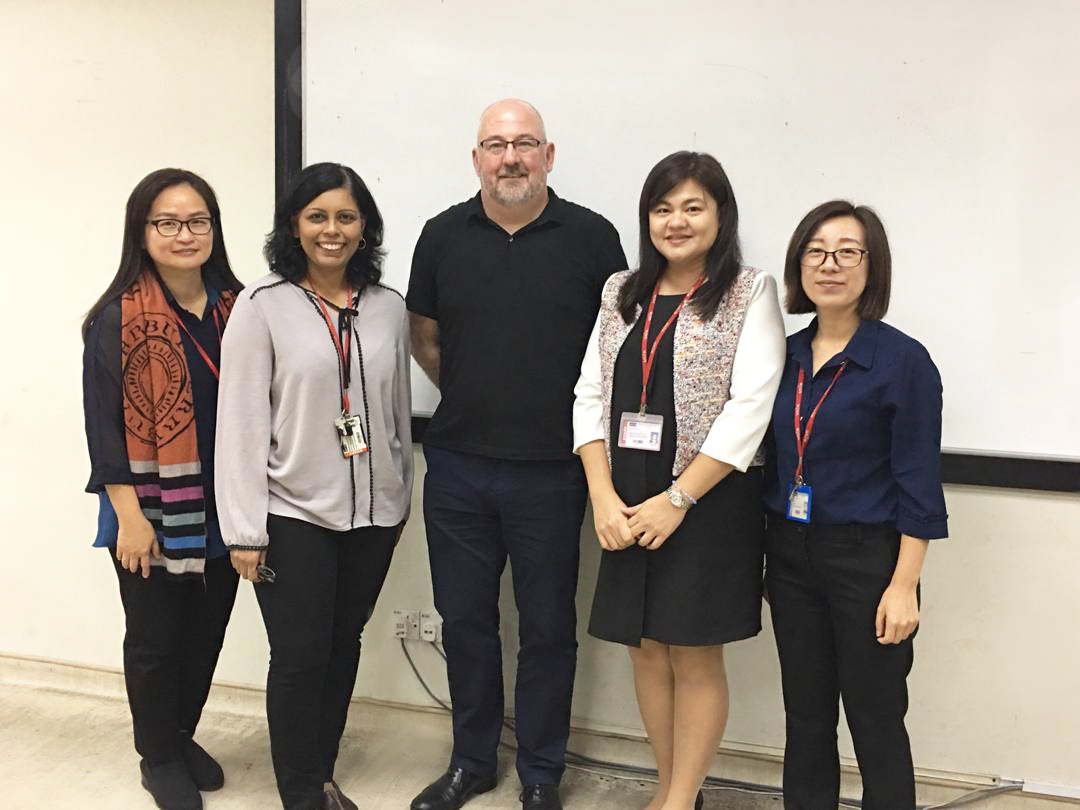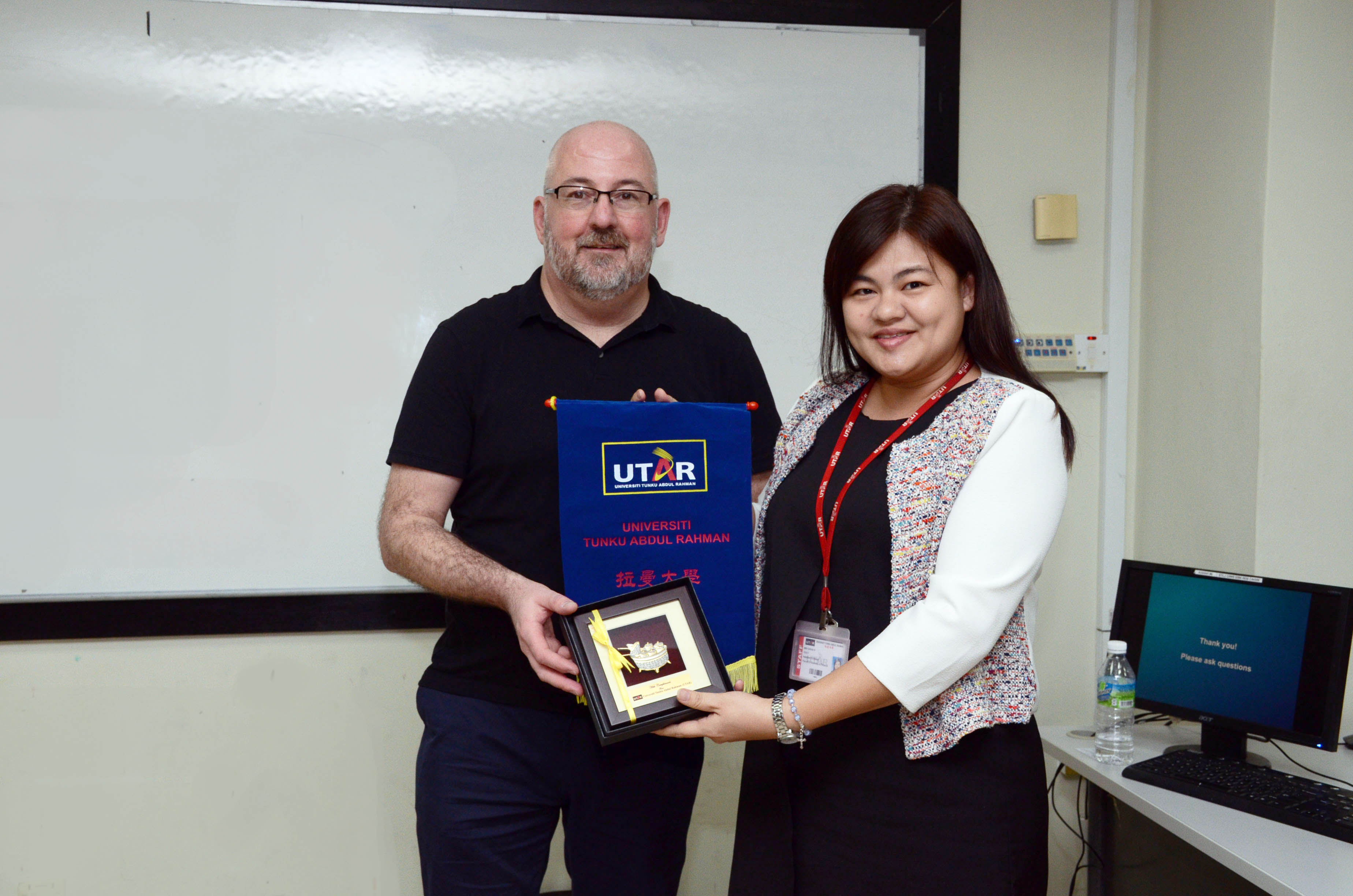


Prof Neil (middle) with CLT committees (from left) Dr Ngeow, Dr Sharon, Dr Wei and Faculty of Business and Finance lecturer Lau Siew Yee
The UTAR Centre for Learning and Teaching (CLT) and Tun Tan Cheng Lock Centre for Social and Policy Studies (TCLC) organised a talk and workshop at UTAR Sungai Long Campus on 22-23 January 2019. It was conducted by University of Nottingham, United Kingdom School of Medicine Prof Neil Coulson. Prof Neil presented his talk titled “Coping with illness in the digital era: the role of online peer support communities”.
Present at the talk were CLT Chairperson Dr Wei Chooi Yi, Faculty of Creative Industries (FCI) Programme Coordinator for Curriculum Development (Non-Science and Technology Programmes) Dr Ngeow Yeok Meng, FCI Dr Sharon Wilson, lecturers, students and public.
The talk focused on the role of online peer support communities through examples from his programme of research spanning over 15 years. He also critically discussed a range of issues which include the reasons for engaging with online peer support communities, its benefits as well as the risks, the psychosocial impact of participation and how support is enacted online. Aside from that, the talk reflects on the key methods used to investigate the role of online peer support communities as well as provide recommendations for future research.
In his talk, he spoke about online support communities, the popularity of online support communities, potential advantages of online support communities, why and what people use in online support communities, theoretical perspectives, empowerment, Affordance Theory and future directions.
He said, “The online support communities are often been described as virtual communities, web-based communities, online support groups and e-communities supported by several platforms such as discussion forums, messaging applications, chat rooms, social networking sites, blogs, micro-blogs and virtual reality environments. The two main types are known as synchronous or asynchronous.”
He added, “The most common types of online support communities are dedicated to supporting those affected by health conditions. Other types include behaviour change, parenting, caregiving and bereavement. In the past two decades, there has been an increase in the number of online support communities and the number of people accessing communities.”
The interactive workshop on the second day saw a detailed explanation of online research methods and tools which can be used when embarking on research. The workshop aimed to provide participants with both a theoretical and practical understanding of their use in research as well as to consider the ethical issues which may arise and how to mitigate against potential risks. The topics covered by Prof Neil were the use of online research methods, advantages and disadvantages of online research methods, online interviews, online focus groups, online surveys, social media as a research environment, ethical issues in online research and future directions.
The workshop attracted participants from UTAR Sungai Long Campus and Kampar Campus as well as from Universiti Malaya (UM), Universiti Putra Malaysia (UPM), Taylor’s University and Al-Madinah International University. Participants benefited from this workshop as many were in the midst of their postgraduate studies or were contemplating embarking on online research. The workshop served as a platform for the participants to check their research methods with Prof Neil and to discuss ethics and other pertinent issues relating to the different online platforms.
Prof Neil is an international expert in the role of online communities and healthcare. His work has demonstrated the important role online communities play in empowering patients as they attempt to cope with the challenges of long-term conditions. He explored the mechanisms through which patients may benefit from participation in online communities and factors that may be associated with the level of satisfaction as well as a range of psychosocial outcomes. Prof Neil has also published pioneering papers which have explored the provision of social support between community members.

During Q&A session

Dr Wei (right) presenting the token of appreciation to Prof Neil
© 2019 UNIVERSITI TUNKU ABDUL RAHMAN DU012(A).
Wholly owned by UTAR Education Foundation Co. No. 578227-M LEGAL STATEMENT TERM OF USAGE PRIVACY NOTICE